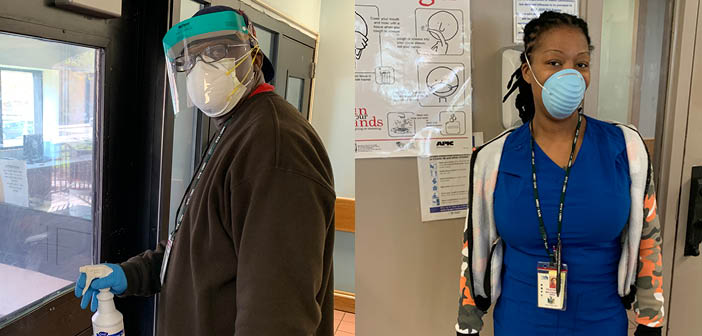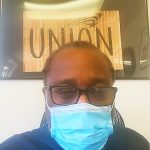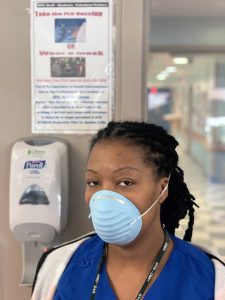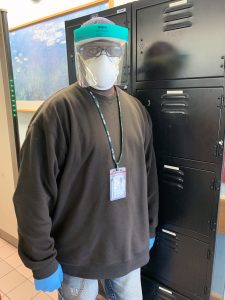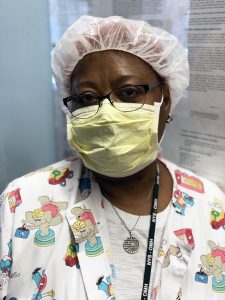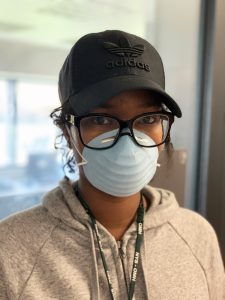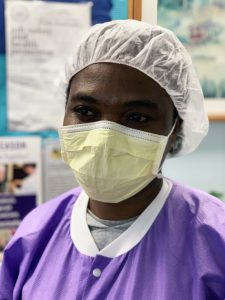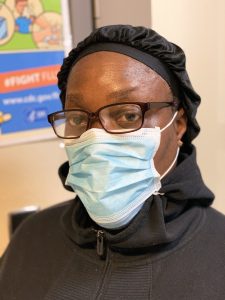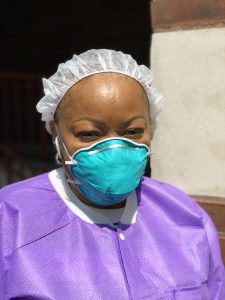Front-line DDSO workers discuss concerns with union
STATEN ISLAND — At the height of the pandemic in New York City, workers and individuals at Staten Island DDSO faced and endured especially grave circumstances.
Shortages of staffing and protective equipment and the inability to properly practice social distancing in such close quarters as is common in a group home, created an inevitable, unforgiving breeding ground for COVID-19 that resulted in numerous infections and the untimely deaths of workers and individuals under their care.
CSEA President Mary E. Sullivan, Executive Vice President Denise Berkley, Metropolitan Region President Lester Crockett and Staten Island DDSO Local President Jeanette Mitchell and staff recently held two telephone forums with Staten Island DDSO workers to hear their concerns and offer the union’s support.
“I want to thank the officers and members at Staten Island DDSO for their extraordinary work and courage,” said Sullivan. “We are here to listen, to learn and to assist you as we move forward.”
Nearly six weeks into the pandemic, members said there was still an inadequate supply/distribution of personal protective equipment (PPE). The local CSEA leadership continues to push for a consistent and timely distribution system so PPE gets into hands of frontline workers as quickly and efficiently as possible.
They also feared infection since workers were being ordered to float to homes with known COVID-19 cases. Other members expressed concern about the grueling effects multiple, mandatory shifts continue to have on the physical, mental and emotional well-being of workers, some of whom clocked over a dozen such shifts.
“People don’t want to die or get infected and they shouldn’t be threatened by management for refusing to be placed in a dangerous environment,” said one member. “We love our jobs and want to be able to do it, but we don’t want to get sick.”
CSEA had been working with OPWDD management at the state level prior to the pandemic to bring additional staff into the agency and speed up the hiring process.
Mitchell praised members for their dedication and their many sacrifices and promised to continue our union’s demand for proper equipment and safety protocols. “They are our first responders and we will fight to make sure they are treated with the dignity and respect they deserve,” said Mitchell.
Finally, members inquired about hazard duty pay and the delay of raises. Sullivan said the union had strongly objected to the announced wage delay and is pushing to get raises paid. CSEA is also demanding increased federal stimulus funding for states and localities (see page 3 for more) and supports using that funding to recognize the sacrifice of essential workers who are getting us through this crisis.
— David Galarza
Jones: ‘Our members will get through this, too’
During the COVID-19 pandemic, CSEA members are continuing to deliver essential services to those most in need, including individuals receiving services for mental illness and developmental disabilities.
As COVID-19 cases increased on Long Island, CSEA Pilgrim Psychiatric Center Local President Arnold “Rashad” Jones reached out to the center’s management to help ensure that workers would be able to care for individuals as safely as possible.
While Pilgrim already had a limited amount of personal protective equipment, more equipment, including N95 masks and nitrate, will be sent to the center now that Suffolk County has been declared a hot spot for COVID-19.
“Managers have to make sure they gave employees what they need to make them feel confident enough to go to work and deal with COVID-19 positive individuals,” Jones said.
Jones also urged management to change other center policies.
“I sent management an email asking them to take temperatures as people come in,” he said. “Luckily, they obliged. That simple act not only acts as a safety precaution, it also shows our members that someone cares about their environment and well being.”
Jones added that it’s particularly difficult to care for individuals with mental illness during a pandemic, as some of the individuals do not necessarily understand the importance of social distancing.
Despite the challenges our members are facing, Jones is optimistic.
“[Our members] have seen a lot of hard times and just like they made their way through those cataclysmic events; they’ll get through this, too,” Jones said. “It’s just a matter of exercising proper precautions. I tell members all the time that they are going to be blessed for the noble work that they’re doing, especially now. They don’t realize how heroic their work actually is; they are walking into situations where they are literally risking their lives. They are trailblazers because they are living through a circumstance that no one has ever seen before.”
— Wendi Bowie
Kingsboro Pyschiatric Center workers are on the front lines caring for individuals, including:
- Peaches Matthews, mental health therapy aide
- Terry Lofton, supervisor, Environmental Services
- Suze Green, mental health therapy aide
- Shamonique Harvey, mental health therapy aide
- Chinatu David, mental health therapy aide
- Diane Spencer, mental health therapy aide
- Hazel Ash, LPN

